Top Tools for Regulatory Compliance
By Emily Fenton
Updated November 15, 2024

Without software, it's difficult keeping up new and newly amended regulations in your industry.
See our list of the top regulatory compliance tools so you're equipped with the best software to maintain compliance.
Introduction: How to Maintain Regulatory Compliance
Before you can be compliant to applicable state and/or federal regulations, you need to conduct regulatory intelligence. This includes researching regulatory information, typically from the internet, to understand the latest requirements relevant to your organization.
But monitoring regulatory updates, new forms and guidance documents, announcements, news and websites is difficult for professionals to do manually.
Regulatory tracking software is necessary to automate the process of monitoring regulatory changes. The data is then analyzed for regulatory intelligence, leading to actionable insights for the company to take to ensure compliance and avoid enforcement fines.
Check out the top regulatory compliance tools below.
Top Regulatory Compliance Tools
Visualping
Visualping is an AI legal research tool that notifies you of any legal and regulatory updates on the web. It's one of the top website change monitoring tools that automatically crawl specific web pages of interest, such as regulatory agencies.
With its AI, keeping up with the latest regulatory updates you need is much easier. When changes occur, Visualping sends you a real-time email alert that includes an AI-generated summary of the page change, distilled in 2 to 3 lines.
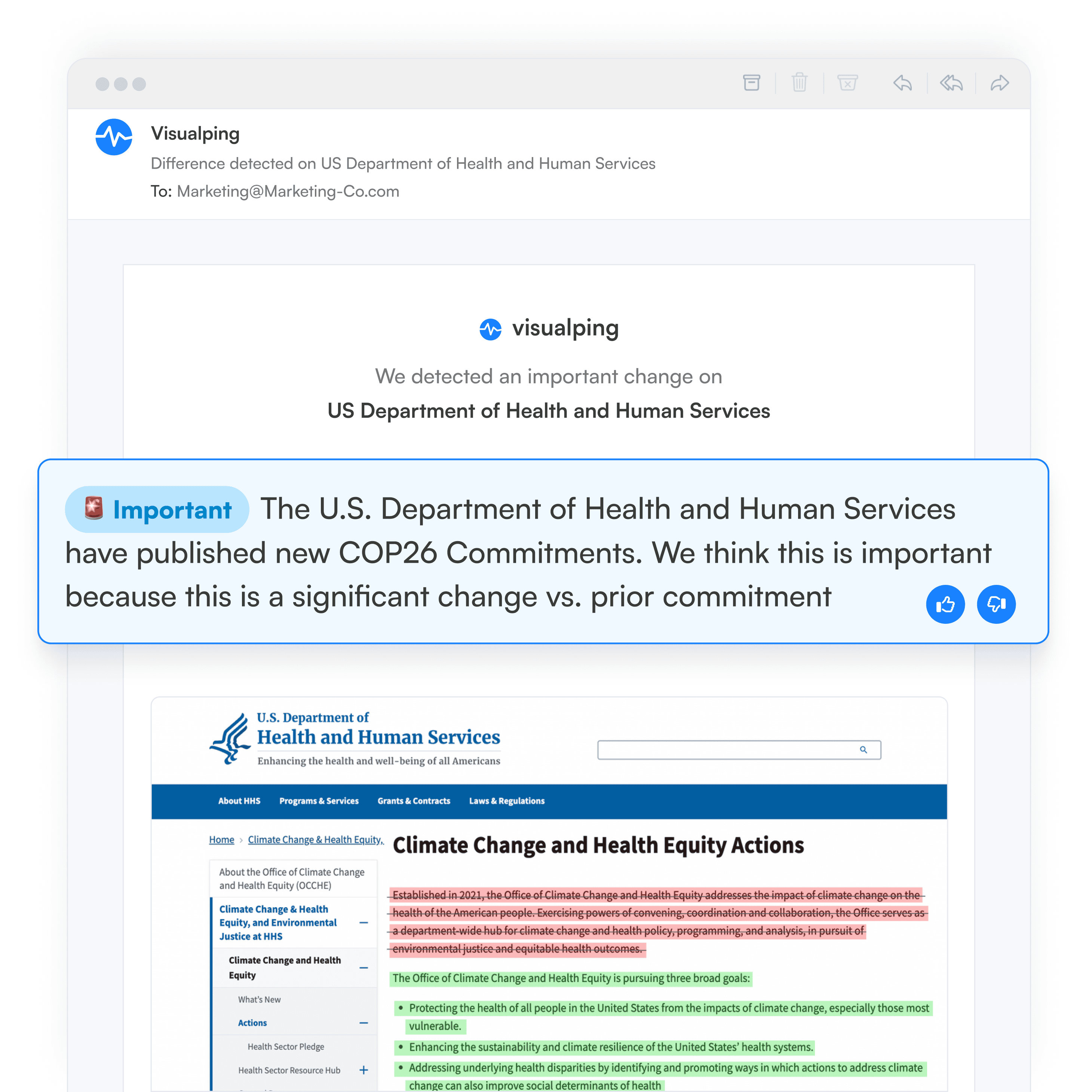
It also includes a screenshot of the page, with the changes highlighted, for you to see. Regulatory and compliance professionals can understand the regulatory development quickly and notify the appropriate channels.
When setting up a monitor with Visualping, users select which pages to monitor, and customize how often the pages are to be crawled. Users can monitor any pages they wish, including PDFs and social media. Depending on the urgency of the change, Visualping can crawl pages every 5 minutes to once weekly.
Visualping monitors pages for visual, text or HTML changes. The text-compare monitoring mode captures textual page changes, like changes to Terms and Conditions Agreements (T&Cs).
Visual-compare captures visual page changes, such as new committee hearings on a virtual calendar layout. All changes are highlighted in red, easy to promptly identify.
You can filter your monitoring with Visualping’s Keyword Alerts feature. Instead of being alerted every time text changes occur, such as a new guidance announcement or posted bulletin, receive alerts for posts that only contain specific keywords of interest.
As well as a legislative tracking software, businesses use Visualping as a tool for competitive monitoring, to produce competitive intelligence. For more on this, check out our blog post What is competitive intelligence?.
There are several business subscription plans for high frequency monitoring.
Social Mention
Through Social Mention’s advanced search toolbar, you can produce regulatory intelligence by being alerted of specific keywords from across the internet. Social Mention checks blogs, microblogs like Twitter, images, videos and reputable news sites.
Topics to monitor include FDA changes, specific regulators, regulatory keywords, your company, competitors and the names of you and your competitors’ products.
You can even set up RSS feeds to easily follow developments in Feedly, featured below.
RSS feeds are handy regulatory intelligence tools. As opposed to manually navigating between hundreds of websites, RSS feeds allow professionals to subscribe to a website, which sends plain-text updates to their RSS reader when new content is posted.
Feedly
Feedly is an RSS reader with a variety of options for monitoring data for regulatory intelligence and compliance.
You can easily organize your RSS feeds by moving websites into different categories so you can efficiently identify your priorities and navigate between feeds. You can also use the tool to mark feeds as "must reads" to help ensure you won’t miss important updates.
Forget emailing articles to yourself to read later. Social Mention, featured above, lets Feedly users save articles from across the web to their Feedly accounts.
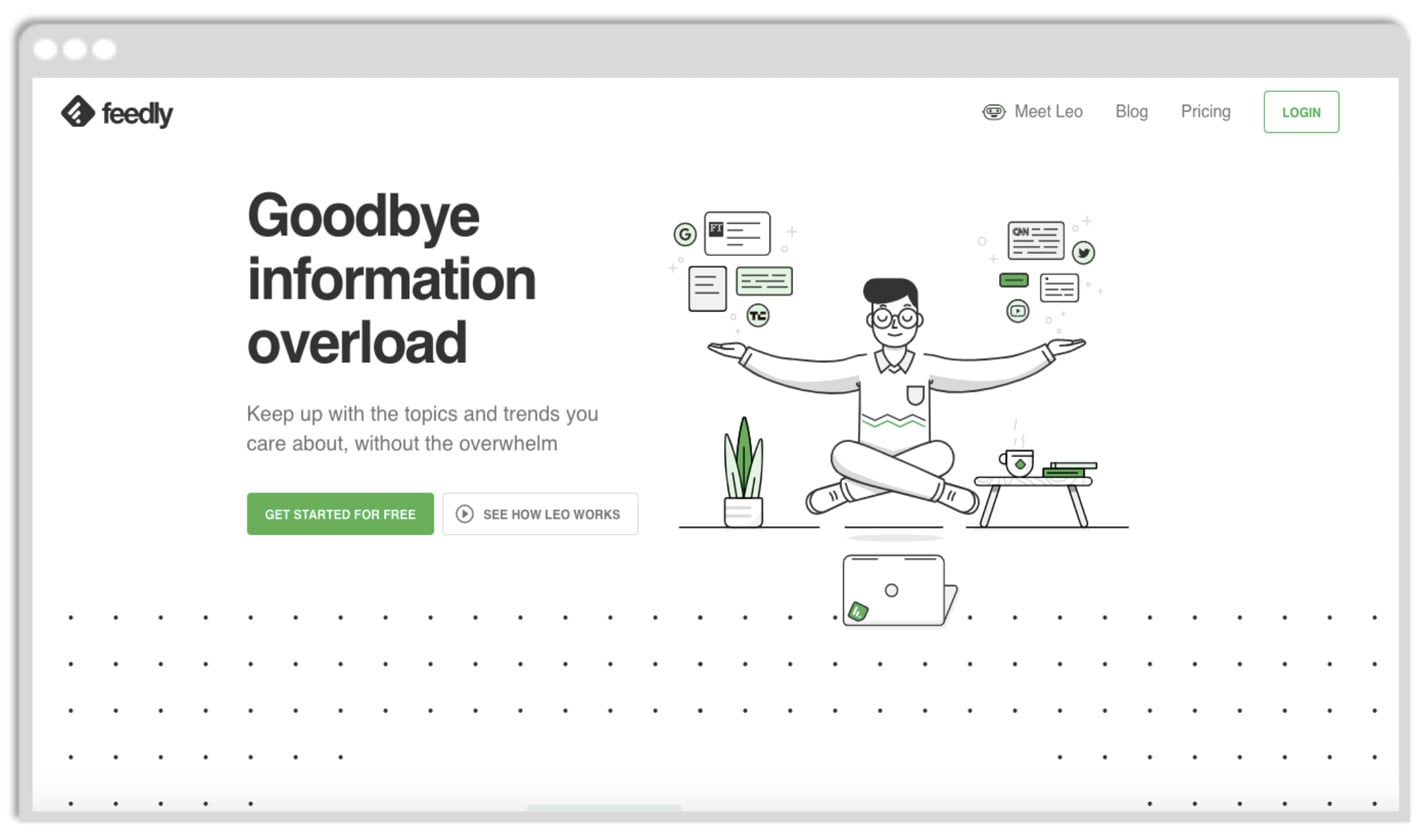
TweetDeck
Harness the power of Twitter for regulatory intelligence and compliance. TweetDeck is a social media application that lets you manage various Twitter accounts.
It makes it easier to view a stream of information that automatically updates, allowing users to monitor, in a single window, the latest information, updates and search terms.
Evernote
Evernote lets you seamlessly save articles, documents, notes and files in one spot, making monitoring data for regulatory intelligence easier. The tool is free, with premium upgrade options.
Evernote helps you keep track of important legal cases, new regulatory filings and guidance documents released by FDA. You can tuck aside background explanations of regulations you’ll need to provide your coworkers later.
Check out mobile app and browser extension to easily capture your content throughout the day.
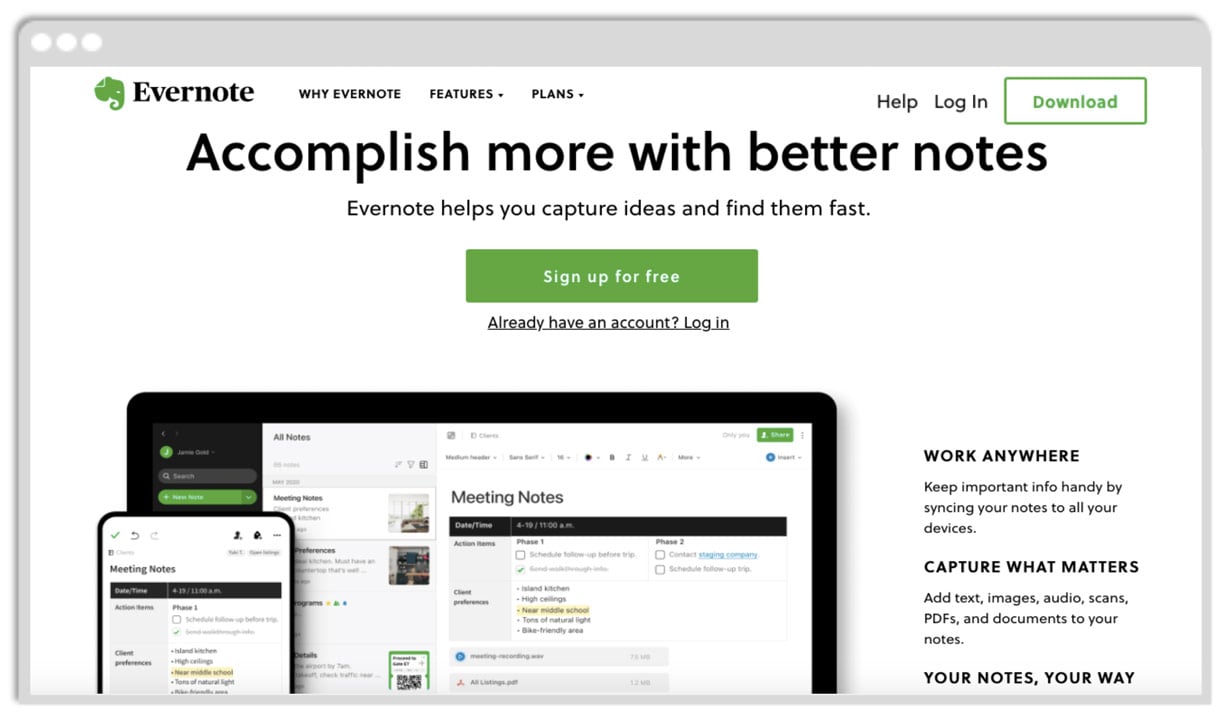
SCOUT
While Social Mention monitors news-related information, the tool tailored to researching government data is the Sunshine Foundation's regulatory monitoring tool, SCOUT.
With the user's keywords, SCOUT monitors federal and state legislative data, court cases and regulatory information. While the data may be a few days delayed, it’s usually the first place professionals notice new state-level legislation changes.
It's also useful for tracking federal regulations, especially if you don't have time to scour through EPA, DEA, FCC, HHS, or other regulatory filings, for relevant data.
SCOUT supports RSS feeds.
Federal Register.Gov
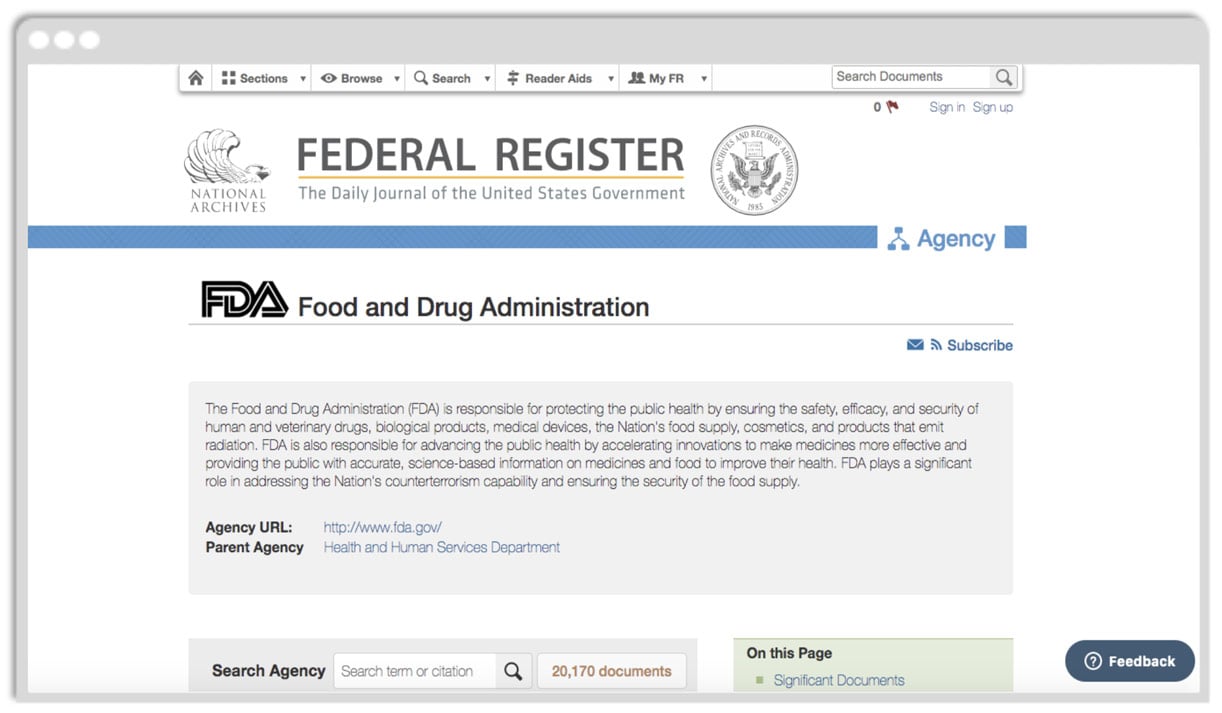
This is an obvious one. The Federal Government's regulatory publishing service, the Federal Register, includes several helpful features for regulatory intelligence and compliance.
An example is the "Public Inspection" desk, where FDA and other agencies publish regulatory documents at least 24 hours in advance. Be one of the first to discover new regulatory developments before your coworkers start asking questions or, worse, start spreading incorrect information.
Subscribe to RSS feeds for FDA notices. You can also subscribe to an email for the FDA's public inspection notices, as well as for other agencies.
Meta Reddit Monitor
Reddit is one of the Internet's most active and diverse sites. Regulatory Focus recently explained it's an excellent tool to keep tabs on developments in various disease groups, as many folks participate in active discussion groups about their particular conditions and the trials they're a part of.
You can also monitor how people abuse a product, as many sub-forums are dedicated to the misuse of drugs.
Meta Reddit Monitor is an excellent tool for helping you keep tabs on hard-to-find information on Reddit.
It also supports RSS feeds. But it’s a general interest website, so be forewarned you’ll likely be sifting through some less-than-mediocre content before you find what you’re looking for.
Court Listener
Similar to SCOUT, Court Listener is a tool that lets you monitor legal cases, but with more in-depth search options. Regulatory and compliance professionals can research more relevant legal cases, or keep up on developments affecting competitors.
Court Listener doesn’t provide custom RSS feeds. But, like Visualping, it does offer custom email alerts. Free users also have access to its bulk data.
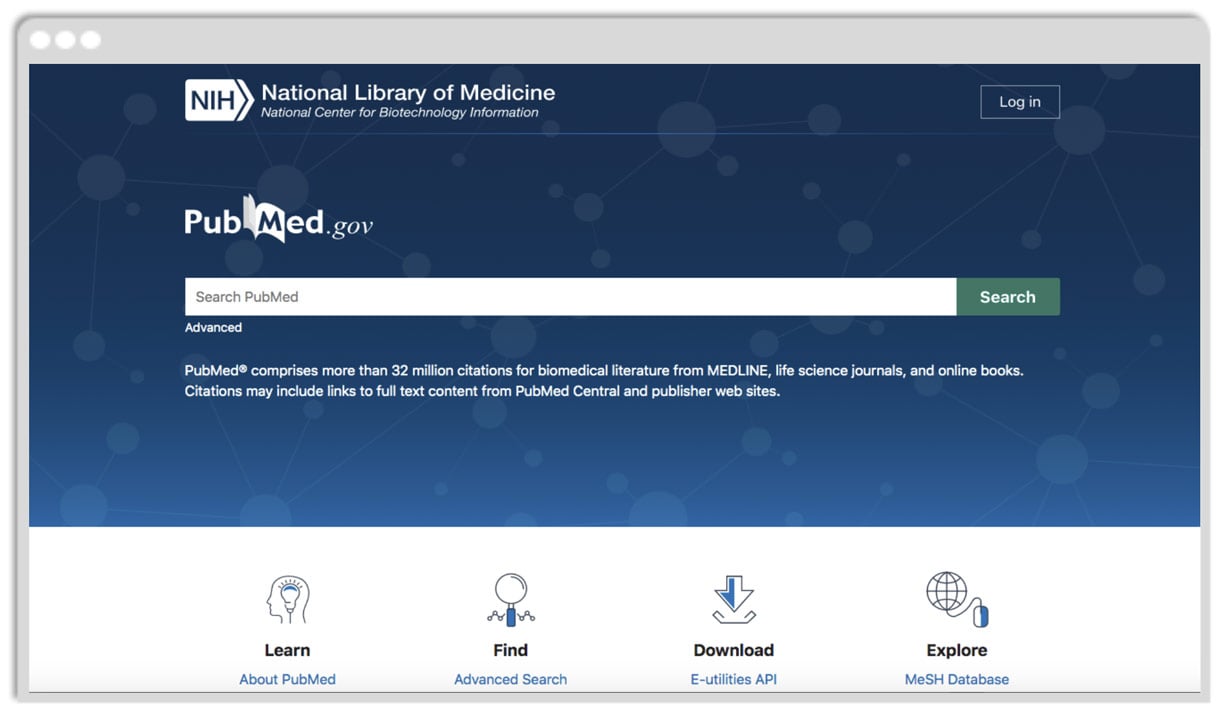
PubMed
Regulatory and compliance professionals need to keep up with what other professionals plan to do. PubMed, the National Library of Medicines' publication database, is a tool that lets you do just that.
Use its search filters to monitor publications written by select regulators or a particular office of FDA. You can also keep tabs on certain drug names and other regulator topics.
Note: while PubMed supports RSS feeds, many of its outbound article links are blocked behind their respective journals’ paywalls.
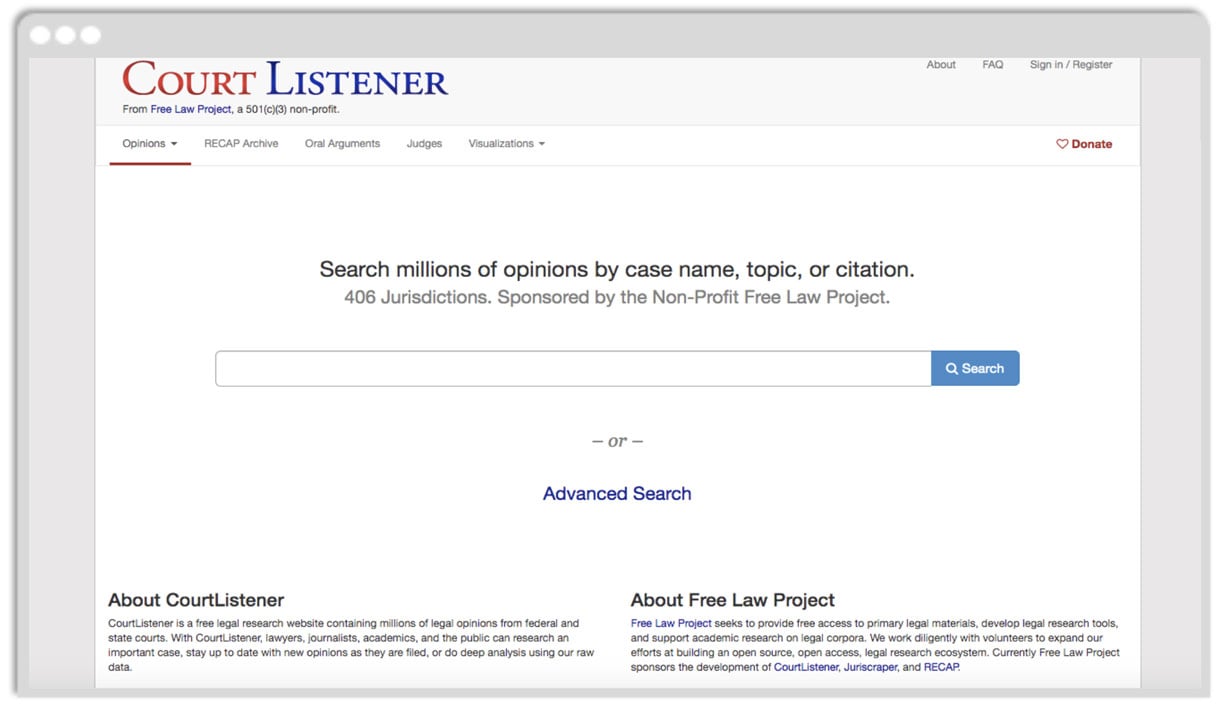
Conclusion
In order to cultivate regulatory intelligence and maintain compliance, you need to gather a breadth of raw regulatory data.
Instead of manually scouring for this data, save time and resources with one of these top regulatory intelligence tools. Make it easier to efficiently research and analyze data so you can take action strategically and quickly.
Want to monitor web changes that impact your business?
Sign up with Visualping to get alerted of important updates, from anywhere online.
Emily Fenton
Emily is the Product Marketing Manager at Visualping. She has a degree in English Literature and a Masters in Management. When she’s not researching and writing about all things Visualping, she loves exploring new restaurants, playing guitar and petting her cats.